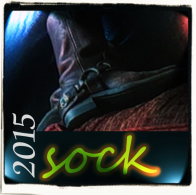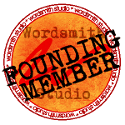
Listen, I’ve seen some gory things in all the research I’ve done for writing, so don’t go blaming me that this week’s Friday Links for Writers: Quirky Research Sources #4 goes a little dark. Fact is, most writers joke that they’d get more than a raised eyebrow if anyone caught a peek at the things googled in the name of research. And this week’s collection of odd sources I’ve come across in my reading goes just that dark.
Whether you need to know the actual metabolism of an overdose, or the bureaucratic processes a body goes through after death, there’s a link here for you. Half a dozen relate to journalism in conflict zones. And, if you’re squeamish, no worries: there’s one on art restoration and a couple on our community connection to the bodega, and one to help you track extreme weather happening at the time your story takes place. None of that fits the focus of your work? Find links to the last 3 Quirky Resource posts at the foot of this article, for more.
As you jump in, feel free to share your own favorite research links, or let us know what you’re working on this week, so we can cheer each other on. Have a great writing week, all.
* * * * *
Often, Writing Requires Knowing Processes That Happen After Death:
Deborah Halber writes about a campaign to use current forensic processes to identify bodies that have remained John/Jane Does for decades. Interesting details of the processes and obstacles.
Learning to Speak for the Dead
Journalist Winnie Hu writes about the training and process of forensic pathologists in this 2016 piece on the Forensic Pathology Fellows Program, which she says “helped resurrect a long-troubled agency, the New York City Office of Chief Medical Examiner.”
 Silent Witness: What Human Remains Can Tell Us
Silent Witness: What Human Remains Can Tell Us
It’s a shame that this article by the Irish Times was triggered by the discovery of dismembered remains in the Wicklow Mountains. For anyone writing crime or mystery in the Irish Republic, it traces some of the bureaucratic and forensic processes that follow to resolve the crime.
Crematory is Booked? Japan Offers Corpse Hotels
Motoko Rich’s New York Times article reveals a funeral trend in Japan, provoked by changes in community lifestyles and a cremation industry unable to keep up with demand. Well-researched, it is interesting in revealing funereal traditions of a crowded island nation, Buddhist burial traditions, and demographic trends.
Sure, Setting’s Great, But What Drought, Fire or Storm of the Century Was Going On?
Reading Tana French, I noticed the million different ways she describes rain in Ireland. Living in Florida, I know how extreme weather is a part of seasonal culture. Visiting a friend overseas, I remember the drama of hiking through acres of trees blown flat by a hundred-year storm, climbing thick trunks suspended 10 and 20 feet off the ground… Got me thinking: what major weather events were taking place the year or months surrounding my novel? Sure enough, there’s a site for that. The “Global Hazards” page of NOAA allows you to search major weather events worldwide, by year and month. When reduced to simple ledes, I could quickly see how NOAA’s brief reports of massive weather events — from a tornado wiping out Happy, TX, to droughts, wildfires and monsoons — could inspire story ideas.
For Writing Authentically About Resistance, Reporting & Conflict Zones:
I was gripped by this long read by war journalist C.J. Chivers in New York Times Magazine, which peels back layers to the story of the service, crime, PTSD and substance abuse treatment, and sentencing of Marine Corps veteran Sam Siatta. Chivers’ research is eye opening into training, engagement, battlefield protocol, citizens vs. targets, returning to civilian life, subtle development of PTSD (and alcohol dependency), as well as phases of trial, sentencing, prison and appeal. It’s an interesting read for anyone whose writing encompasses military life or veterans, an increasingly common detail even in non-military writing.
2017 Resistance Actions – Week One
How do you grab hold of issues that are unfolding as we speak? This post by Maud Newton is an example of some of the concrete daily actions people began undertaking in response to threats against human rights since the start of 2017. A couple other sources of info (or to support) include the ACLU (e.g., filing cases against unconstitutional legislation, lawyers manning airports during travel bans) and Women’s March.
“Experts in authoritarianism advise you keep a list of subtle changes”
Want one source for tracking the societal changes that have taken place, week by week, 2016-17? Amy Siskind has achieved near-legendary status for having started this weekly list. The link above takes you to a cumulative list, searchable by topic. You can also receive Amy’s updates by following her on Twitter or Facebook
I’ve followed the Committee to Protect Journalists in the (unfortunately) nearly 5 years since journalist Austin Tice went missing in Syria. The CPJ is admirable in providing a voice and conduit for information related to persecution of journalists around the world. This link takes you to a collection of 55 guides and checklists for safety and survival for journalists and photographers working in heated environments.
Turkey’s Crackdown Propels Number of Journalists in Jail Worldwide to Record High
This article and others on the website for the Committee to Protect Journalists provides statistics, profiles, to the capture, release, and deaths of journalists, worldwide. Overall, the CPJ has been one of my leading sources for events and resources impacting journalists in the last decade. On Twitter: @pressfreedom
Drugs & Forensics:
 Best Websites for Writers – Guns, Polices, Forensics & More
Best Websites for Writers – Guns, Polices, Forensics & More
I’ve shared a link from this blogger before. This post includes links to multiple resources for researching forensics and more.
While writing has occasionally had me researching weaponry or forensics, I am in fact a strong advocate for gun safety and antiproliferation, so should provide a source for that as well.. Everytown is one source of information regarding the escalation in gun deaths in the U.S., particularly since the end of the ban on assault weapons in 2005.
The Opioid Epidemic:
This is Exactly What Happens When You Overdose
While it’s not a topic I’m interested in writing about, I’m sure the current opioid epidemic has some writers interested to write authentically about drug risks. In clear terms, this post walks through the exact bodily processes from drug ingestion through the ways it can go wrong. All the details you’d need to know that get your character calling 911.
Latest Harrowing Statistics of American Opioid Epidemic
If you didn’t know there was an opioid epidemic or wanted further statistics, this recent Vox post suggests that, “in 2016, drug overdoses likely killed more Americans than the entire wars of Vietnam and Iraq.”
Quirks and Specificity – Getting Your Cultures Right:

15 Behind the Scenes Secrets of Art Restorers
I loved the details of this piece on art restoration by Jane Rose at Mental Floss, which connected to my artist in Breathing Water and my museum display expert in “Jar of Teeth.” I can see writers riffing on these processes for characters in the arts, quirky concerns about a setting, or, dare we say, solving a crime.
Secret History of Victorian London’s Dirty Book Trade
In old cities and cultures, it can be hard to see beneath contemporary gloss and acknowledged history to find those remnants of more… textural elements of the past. This article is intriguing, that way. Victorian London your focus (it’s not mine)? Look for more on the site, as The Public Domain Review is a not-for-profit project “dedicated to the exploration of curious and compelling works from the history of art, literature, and ideas.”
 What do You Call the Corner Store?
What do You Call the Corner Store?
In a year I spent focusing on subtle ticks of spoken language between characters moving through foreign countries, I found Dan Nosowitz’s piece at Atlas Obscura as a great springboard for noticing specific character linguistics. “In many places, you’d be laughed out of the building for calling it a ‘convenience store’. It’s a bodega. It’s a packie. It’s a party store. What you call the store on the corner says a lot about where you live.” He may be talking corner stores, but it’s great prod to work more specifically toward character linguistics.
Earning a Spot in the Neighborhood
Continuing on that thread, Kristen Radke’s piece at Electric Lit had me thinking about the way community stores, pubs, and other locals are such a key identifier for the characters we write. Kristen captures the nuance of this relationship, specific to identifying with one’s bodega, neighborhood to neighborhood, in NYC: “Bodegas represent so much a neighborhood’s mood and energy… They also become beacons of safety, sometimes the only place open and brightly lit late at night, and makeshift meeting places in a city with such limited community space. It’s a mark of belonging… ‘that place is going to see you through some shit.” Beyond literal insight to NYC, it had me wondering: what locals would my characters trust to ‘see them through some shit’?
In the Ashes of the USSR: 5 Books to Understand Russia
In reading Anthony Marra’s Tsar of Love and Techno, I was impressed with his subtle and deep understanding of Russia’s evolution, which went way beyond my views, even having been a huge fan of Eastern European and Russian lit from the 80s on. So, this list by Matt Staggs struck me as that kind of insight.
Want more?
Here are the first 3 posts from this series:
- Friday Links for Writers: Quirky Research Sources #3
- Friday Links for Writers: Quirky Research Sources #2
- Friday Links for Writers: Quirky Research Sources #1
* * * * *
If you like this blog, be sure to click the WordPress +follow button, or use the email subscription button in the sidebar. You can find me on Twitter @elissafield or on Facebook.

At work on novel revisions. c. Elissa Field





 13 Authors on the Life Changing Impact of the NEA
13 Authors on the Life Changing Impact of the NEA






 Danai Gurira’s Advice to Young Female Writers: ‘Go Where You Are Loved’
Danai Gurira’s Advice to Young Female Writers: ‘Go Where You Are Loved’


 Found on Pinterest: Plot Timeline Infographics
Found on Pinterest: Plot Timeline Infographics


































 Fab Writing Community
Fab Writing Community















